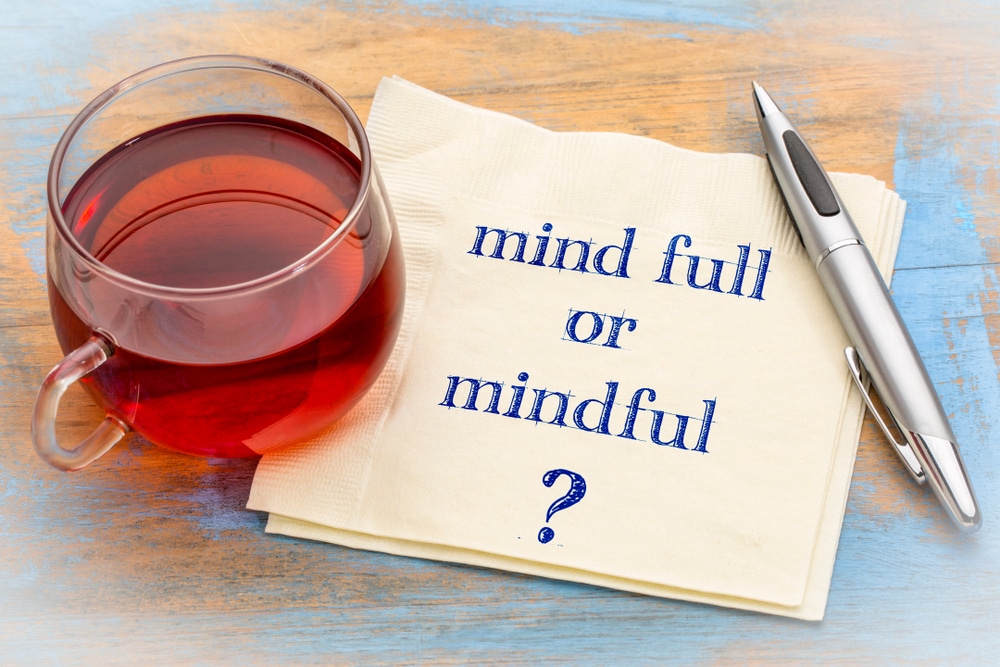You may keep encountering the word mindfulness these days. Let us shed some light on these concept. Usually, our mind keeps producing thoughts, scenarios, ideas and we keep thinking about our to do list, what to do next and possibilities. Especially in today’s world where we immersed in digital devices and daily stress, usually our mind goes crazy and that is the root of most mental issues.
When you start to be aware of your thoughts, what’s happening in your body at a specific moment or how you breathe, you have the chance to stop this crazy roller coaster and start to take control of your own flow. But also, you need to train this awareness state so that you can intentionally turn it on and off. Mindfulness can be considered as the equivalent of this “conscious awareness“.
When we look back to these days, we hope to see kindness alongside the pain and struggles. Well, did you know that being kind is actually good for you? It’s not only a good thing to do for others, it’s also the right thing for yourself. We feel good when we are altruistic. On a spiritual level, something deep within us that says “I do good”. On a biochemical level, acts of kindness may stimulate dopamine production in the brain and result in a consequent pleasant feeling.
You probably can relate to experiencing an emotional warmth following your acts of kindness too. Emotional warmth produces oxytocin in the brain and body. It is known as “a cardioprotective hormone” because it protects the heart by lowering blood pressure. Higher levels of oxytocin are produced through acts of kindness. Thus, kindness can be cardioprotective. Oxytocin reduces the levels of free radicals and inflammation in the cardiovascular system, thereby slowing aging down to its roots. There are also suggestions in scientific journals about the strong connection between compassion and the activity of the vagus nerve, which regulates heart rate and also controls inflammation levels.
When we are kind, we inspire others to be kind and research shows that this actually creates a ripple effect. Just as a pebble makes waves when it falls into a pond, acts of kindness ripple outward, touching the lives of others and inspiring kindness wherever the wave goes.When you do these kind acts with mindfulness, you don’t only stop the roller coaster in your mind and stop the train going to the disrupted mental health station, you also take the wheel of your life and start driving towards a life full of trust, love and sharing.Mindfulness can be instinctive for some people, but it can be learned.
Instinctive mindfulness is usually when you feel wholesome and be aware of the moment as a natural tendency. It can also be developed through meditation practice.Meditation is the practice of becoming aware of the thoughts in our mind and be present in the moment consciously. Whether it is learned or instinctive, mindfulness makes us more capable of focusing to the present moment.
Research shows that mindfulness generates better relationships, better communication and lowered emotional stress. Also, mindfulness has a positive effect on the partner relationships and provides higher satisfaction of the parties. People with a higher awareness are capable of building long lasting relationships due to their qualities like empathy, emotional skills and their resilience to stress.
5 Easy Ways to Implement Kindful Acts In Your Daily Life
1. Show your positive attitude
Surely your parents told you this or you tell your own children but sometimes we forget to say “please” and “thank you”. Whether you’re talking to a server, friend, or even a random stranger remember to say “please” when you want something. Saying “please” changes the tone of a request. Instead of making a demand, you appreciate them, making them more likely to help. On the other hand, when you say “thank you” you are expressing gratitude for an act or service and letting the person know that you appreciate and value their efforts. Nobody wants to feel insignificant. Saying “please” and “thank you” is a shortcut to make someone’s day.
2. Smile at strangers
How do you feel when someone smiles at you? In most cases, they make you feel warm and happy and you’ll probably smile at them as a result. Because of sensory-motor stimulation, we often mimic facial expressions. So, when we see someone smile we usually do the same. Whatever happens, smiling can make your day slightly better. It’s physiologically difficult to be sad while smiling! So share these beautiful feelings with others – even if you don’t know them personally – and be sure to smile at the people you know.
3. Don’t be stingy with hugs
Like a smile, a friendly hug can brighten a person’s day. A good hug can lift someone’s spirits, make them feel loved and appreciated or just help them through a tough day. But did you know that this simple act of love also affects us chemically? Essentially, a good hug is the fastest way to flood your body with oxytocin. Also known as the love medicine, it calms your nervous system and increases positive emotions. So if you want to make someone else feel better and lift your spirits at the same time, give them a hug!
4. Help a stranger
Hold the door for someone, get the person behind you coffee, share your lunch with someone or hold an umbrella for someone in need.Sometimes the smallest actions can have the biggest impact.
5. Be polite
If the person behind you at the grocery store only has a few items and your cart is full to the brim, why not let them go first? It will save them time and you won’t be that terribly affected. They may even return the favor next time they find themselves in a similar situation. Kindness does not require a grand gesture and little things can make a big difference. With a little creativity, the possibilities are endless.



Recent Comments